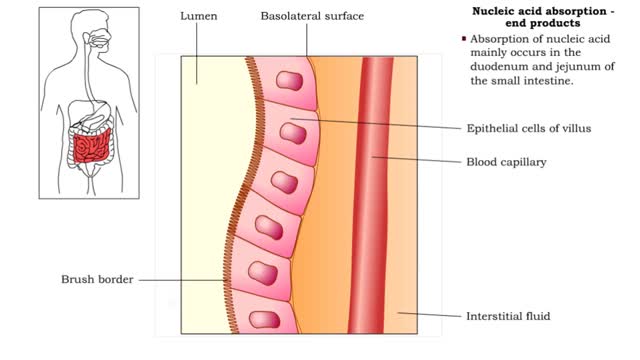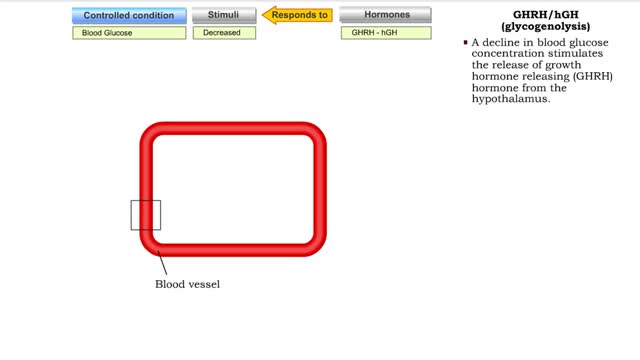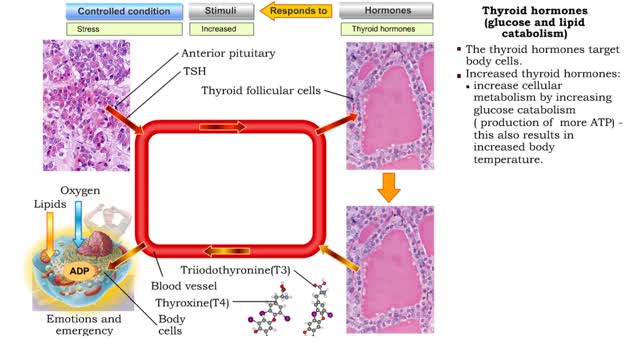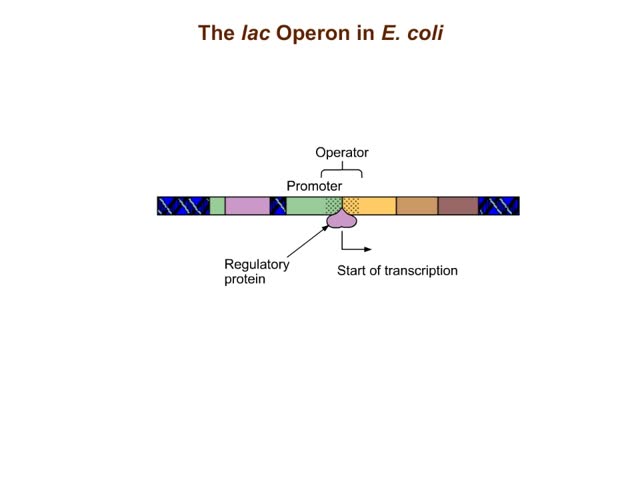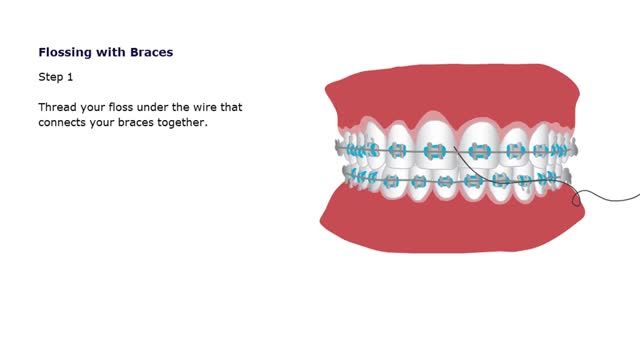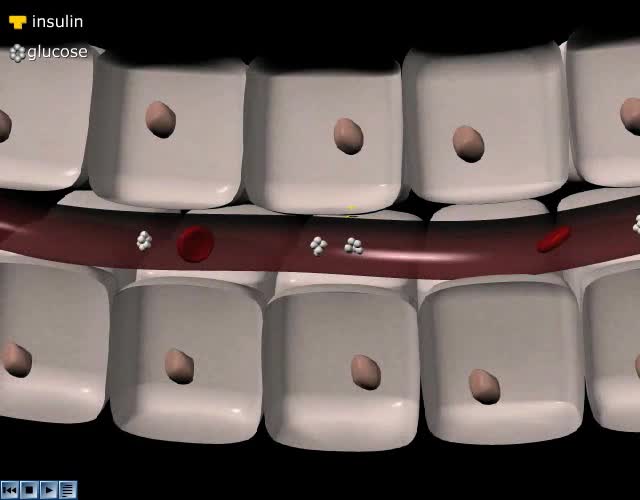Search Results
Results for: 'hydrophilic amino acids'
Nucleic acid digestion - brush border enzymes, end products & transport mechanism
By: HWC, Views: 11533
• Further digestion occurs at the microvilli (brush border) of the epithelial cells of the villi in the small intestine. • Two brush border enzymes complete nucleic acid digestion: • Phosphatases, which catalyze the cleavage of a phosphate to form a nucleoside (nitrogenous base and pent...
Hormonal feedback loop components & Glucagon (glycogenolysis and gluconeogenesis)
By: HWC, Views: 11473
The endocrine system maintains many body conditions within normal limits with feedback loops. Each endocrine feedback loop maintains homeostasis using the following components: • Stimulus - a change in a body condition. • Production cell - an endocrine cell that produces a hormone after ...
hGH, Thyroid hormones & Aldosterone
By: HWC, Views: 11838
Glycogenolysis and lipolysis • Stressors stimulate production of a hypothalamic releasing hormone (GHRH). • The releasing hormone stimulates somatotroph cells of anterior pituitary to secrete human growth hormone. • Human growth hormone targets liver cells and fat cells. hGH (glycog...
By: Administrator, Views: 15822
The lac operon (lactose operon) is an operon required for the transport and metabolism of lactose in Escherichia coli and many other enteric bacteria. Although glucose is the preferred carbon source for most bacteria, the lac operon allows for the effective digestion of lactose when glucose is no...
Oral Hygiene & Braces Animation
By: HWC, Views: 11171
Caring for Your Retainer Retainers, just like your teeth collect plaque, bacteria and food particles. You should clean your retainer everyday! Keep your retainer soaking when it is not in your mouth. Use a mouthwash rinse to freshen it up and keep it free of bacteria. Keep your retainer away fr...
By: Administrator, Views: 16409
Hyperglycemia means high (hyper) glucose (gly) in the blood (emia). Your body needs glucose to properly function. Your cells rely on glucose for energy. Hyperglycemia is a defining characteristic of diabetes—when the blood glucose level is too high because the body isn't properly using or doesn...
Advertisement



